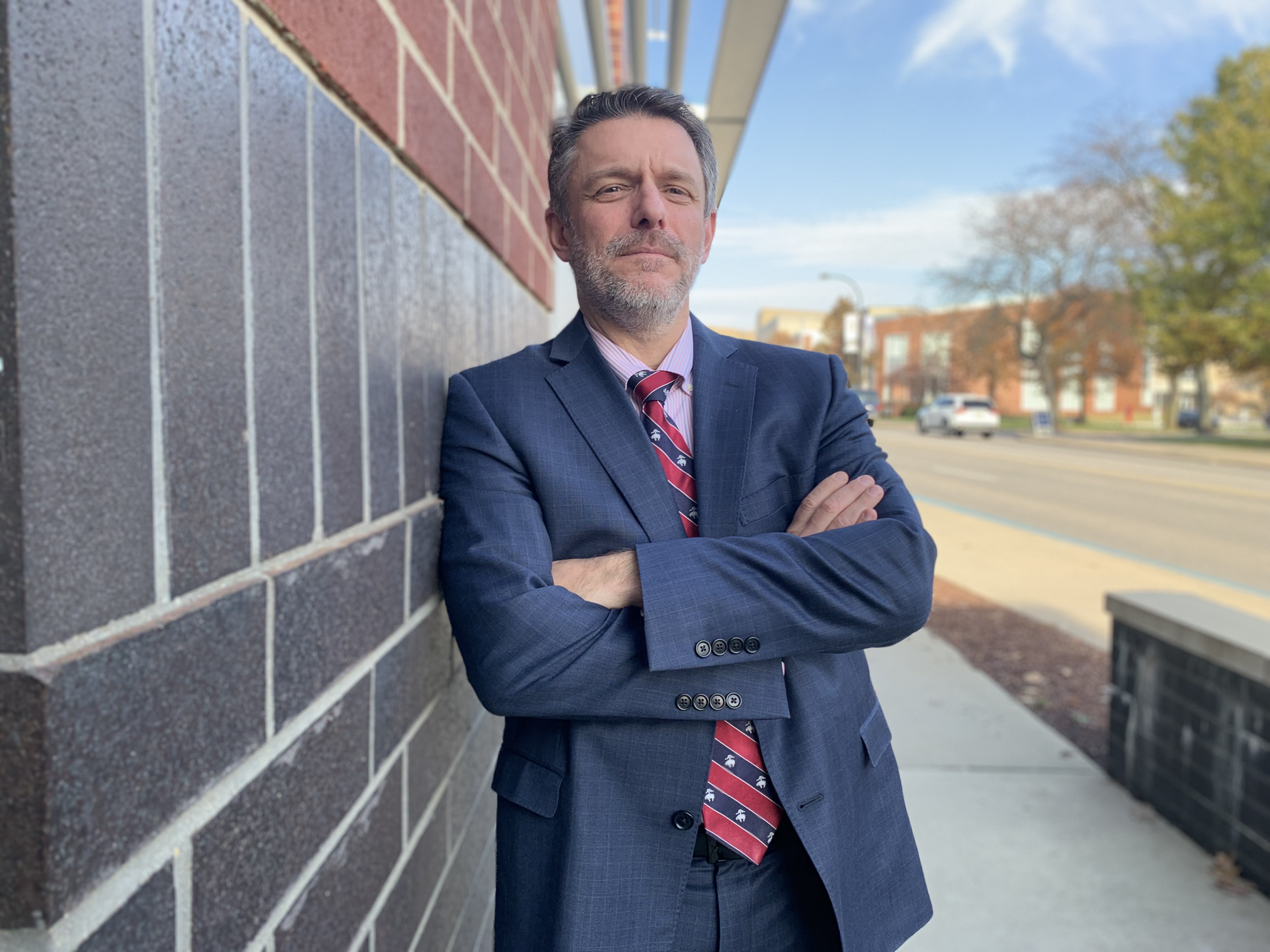Answering the 100-year call: UA engineering professor leads team to create national engineering education framework
It was Ernest Hemingway who said, “There is nothing noble in being superior to your fellow man; true nobility is being superior to your former self.” Whether you are working to improve your personal record for an upcoming marathon, be a better listener, or are exploring professional growth opportunities at work — the effort to improve oneself is time well spent with far reaching benefits.
To help engineering educators enhance their teaching skills, Dr. Donald Visco, Professor of Chemical, Biomolecular, and Corrosion Engineering at The University of Akron, was recently appointed Chair of the Task Force on Faculty Teaching Excellence for the American Society for Engineering Education (ASEE). The task force was charged with creating a national framework for engineering and engineering technology educators so that they can progress in their development as educators by strengthening their teaching skills.
“We believe it is essential that there be support for all faculty to make progress in enhancing their ability to facilitate learning," says ASEE executive director Norman Fortenberry. "We should recognize the time, energy, and effort that goes into making such progress. It is this belief that has motivated the creation of the Task Force and our effort to make it broadly representative of academic engineering. We are thrilled that Dr. Visco has agreed to chair this effort.”

Dr. Visco was recently named Chair of the Task Force on Faculty Teaching Excellence for the American Society for Engineering Education. He is standing outside of UA's Engineering Research Center.
Dr. Visco remembers when he was starting out as a young engineering professor. At the end of his first semester teaching, his student evaluations were not the glowing reviews he hoped. Rather than brushing the comments off, asked himself, “What can I do to get better at this?” He was committed to his students and wanted to help them develop the skills and knowledge they needed to go out in the world as engineers. After he completed a series of teacher-training programs, Dr. Visco noticed an immediate difference in his student evaluations.
Since those early days, Dr. Visco has maintained an active interest in helping engineering educators develop their teaching skills. For example, he has co-taught the American Institute of Chemical Engineers “Effective Teaching for New or Prospective Faculty Workshop” for the past decade. When the opportunity came up to lead the ASEE task force, he was honored to accept his new responsibilities.
“For more than 100 years there has been a consistent call to encourage engineering faculty in the US to be trained on ‘how to teach’, says Dr. Visco. “This call has largely been unanswered. While professional development opportunities exist within engineering education, there isn’t a national model that recognizes the progression of engineering and technology faculty as their instructional skills develop and improve. The work we are doing will start to answer this call in a meaningful way.”
The vision is for ASEE to develop a training program with input from all of the constituencies within the engineering and technology education space, especially faculty, department chairs, deans and provosts. The content of the program will be sourced from existing training providers and universities, with ASEE providing oversight to the certification process. Existing engineering education providers will have to get their programs certified (for the various levels) and individuals will submit to ASEE that they have met various levels (through the provider training).
The benefits to such a program are vast. Students would develop a stronger understanding of the material, which can help retention within these fields. Employers and graduate programs would also benefit from these better-prepared students as well.
Key dimensions within each level are likely to include instructional design, learning theory, assessment, information technology, and inclusion/equity/diversity, among others. The format is to be developed by the providers, though it is anticipated that a combination of virtual and in-person instruction will be utilized. The expectation is that this structured training program for instructional achievement by engineering and technology faculty, which is endorsed by ASEE, will be considered by departments, colleges and universities as a way to assess faculty development within the context of tenure and promotion requirements.
“Our task force just started a few months ago,” Dr. Visco adds. “And while the process will take several years before ASEE is ready to certify providers and evaluate qualifications of individuals for instructional level attainment, it is exciting that we are underway.”
Related content:
- Engineering professor, author, and now editor
- Learn more about the Chemical, Biomolecular, and Corrosion Engineering Department
